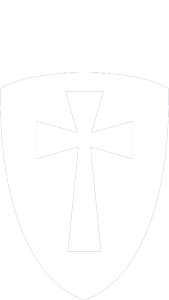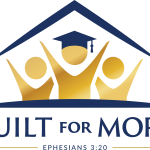Regardless of how you feel about football and the Tampa Bay Buccaneers, I believe generally we would all like to see them succeed and win a championship. If the Bucs are not your team, then how about those Tampa Bay Lightning? This past season they came so close to a championship win. Well, when it comes to education, we also want our kids to feel like championship winners along their academic journey. Engaged Learning is one aspect of our “game plan” that assures us our students will be successful. In an effort to be clear, let’s take a minute and define what it means to be a successful student. We don’t believe success can be merely measured by grades alone. Grades are the outcomes of learning, the “success” to which we are referring reflects the continuous pursuit of personal growth and development. Engaged Learning promotes this form of academic success; it encourages students to pursue Godly excellence. How does Engaged Learning achieve this goal? Research tells us engaged learners go beyond the minimum learning expectations, they embrace learning, and they work harder to attain understanding because they are intrinsically motivated to learn.
Just think for a moment’what do you think the Bucs’ performance on game day would be like if they never practiced on the field, had contact with the ball, or interacted with the game of football between games? What if the coaches kept them in a classroom and told them about football, but did not provide the players with the opportunity to experience or engage in the game, develop the muscle memory required to execute plays, or apply and practice what they learned in order to self-correct and improve their skills? I know if you are a long term Bucs fan you are probably wondering if this has been the Bucs’ “game plan” for the past few seasons, but I am sure that has not been the case. The point is, in order to grow and develop understanding we must interact with the learning process along the way. Engaged Learning does this for our students as it provides them with the opportunity to engage, practice, receive feedback, and self-correct. It is an investment in the “game plan” that will result in success. The more students practice, discuss, and have opportunities to apply and analyze what they are learning, the better retention they will have, and the outcome will be championship wins. We aim for lots of championship winning moments in all of our classrooms here at Cambridge Christian School, which is why we are committed to this educational approach when it comes to teaching and learning.
This summer I read several books and attended educational workshops that really solidified to me the reality that Engaged Learning is the answer to so many different learning scenarios we encounter in each classroom. How can we motivate students to want to learn? How can we reach those students who struggle? How can we keep students from misbehaving or being disrespectful in the classroom? How can we help students retain and transfer learning beyond the test? These are all questions I have asked or have heard teachers, parents, and even students indirectly ask. The best answer I heard loudly and clearly this summer that addresses each of those questions, is to actively and intentionally “engage” students in the learning process. A student’s motivation, performance and even behavior are affected by how well we engage them. We are so blessed here at CCS to have a staff of educators who are open and willing to pursue academic excellence through providing our students with engaged learning opportunities.
The Game Plan
We aim to’
” Strategically integrate a Biblical worldview within every content area.
” Engage students in conversations in response to content.
” Provide resources for a variety of activities within each lesson for kids to practice and apply content.
” Get wheels turning by using an inquiry based approach to ask the questions that lead to thinking.
” Encourage students to go beyond the content.
” Support learning when remediation is necessary.
” Offer immediate feedback that will lead to self-correction and growth.
” Assist students to make connections within content through the Biblical worldview lens.
” Integrate responsible technology usage to promote learning and 21st Century skills.
“ Inspire innovation and creativity.
“ Boost confidence and develop strong thinkers who are able to articulate their beliefs and thoughts.
” Embolden students to share and live out their faith.
” Improve their ability to be managers of information.
” Love learning and see it as a life-long skill.
How are we currently doing this?
We are providing professional development opportunities to empower teachers with current research-based learning strategies and tools that reflect our active and engaged approach to learning. Take a look!
Moodle – In our Upper School division, we are introducing and piloting Moodle. This is an open-source learning management system or e-learning platform that provides teachers and students with a highly interactive, easily accessible learning environment which is fun, innovative and creative. Moodle provides teachers the freedom to develop engaging courses which provide immediate feedback, enhance teaching, and engage students to participate in interactive activities in a safe and controlled digital setting. It allows the learning to go beyond the walls of the classroom, and it offers teachers a venue to connect students to the e-learning world.
Mindset – In our Lower School division, we are fostering a culture of growth and academic risk-taking. Our teachers are developing challenging lessons with meaningful tasks, monitoring student progress, and engaging in conversations on how to best evaluate student work in a manner that promotes long term growth and learning. This mindset is driving our implementation of interactive, engaged learning strategies and an instructional approach. They are incorporating “workshops” in Math, Reading and Writing. Teachers are guiding open discussions and cooperative activities to engage learning and nurture an environment where kids feel safe to be as smart as they want to be.
Thinking Maps – We are very excited to introduce Thinking Maps in grades K-8 this year. Thinking Maps are a language of eight visual patterns, each based on a fundamental thinking process. These eight cognitive skills are combined for students to promote life-long learning across all disciplines. The complexity of the maps increases as they move through each grade level. Thinking Maps are grounded in current brain research and statistical data which all support high levels of gains in student achievement when implemented. Our teachers will begin training in November, and we are thrilled to see the benefits of this implementation for our CCS students.
Biblical Integration – It is our goal to promote a natural process of Biblical integration that permeates through all aspects of school life. In the classroom, the aim is to help students navigate content through the lens of a Biblical worldview perspective. Our teachers (K-12) are receiving training to assist them in making a smooth transition between what we want our students to know and how it relates to the Bible. Engaged Learning strategies support this process by providing students with the time they need to think, process, discuss, and Biblically analyze the information they are learning. Our mission is to glorify God through every level of academic involvement, and engaging them in the process of Biblical integration is a seamless process our teachers are working to attain.
Technology Instruction, Tools and E-Text – By using technology tools such as OneNote, Turnitin, and providing students access to e-text platforms, students are able to collaborate and engage with their teachers and peers digitally. Technology provides teachers with new tools of engagement. Students will use these tools as they mature in their academic and professional careers. Our Upper and Lower School teachers are being introduced to these tools, and are integrating them to enhance learning in an age-appropriate manner. Our students are also receiving relevant instruction in technology. We begin training them in the primary grades, and we continue to challenge their skills through high school with the latest curricular resources and methods.
Active Learning – We began this initiative two years ago, and now it has become part of our “game plan” and our educational philosophy. Our teachers are implementing Harkness and Socratic Seminars and discussions on an on-going basis. We have over 60 active and engaged learning strategies available for our teachers to utilize as they develop and build their unit maps and lessons. Many of our teachers are trained to use Kagan Cooperative Strategies, and we are providing on-going training to introduce more strategies each year. At CCS, we are committed to engaging our students! Our professional development calendar will always offer additional trainings on the most effective strategies that result in engaged learners and critical thinkers.
Moodle resources –
//super-moodle.com/top-4-benefits-of-using-moodle-for-your-school-why-it-works-as-a-platform-for-student-teacher-interaction/
//www.slideshare.net/ChrisChapman10/the-benefits-of-moodle-how-to-engage-teaching-staff
https://docs.moodle.org/29/en/About_Moodle






